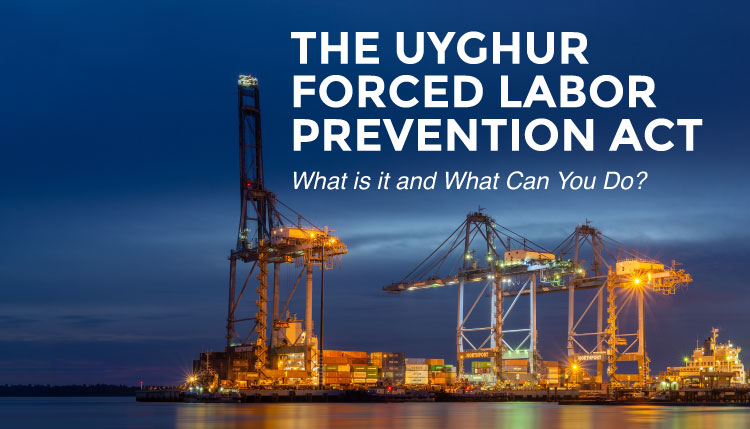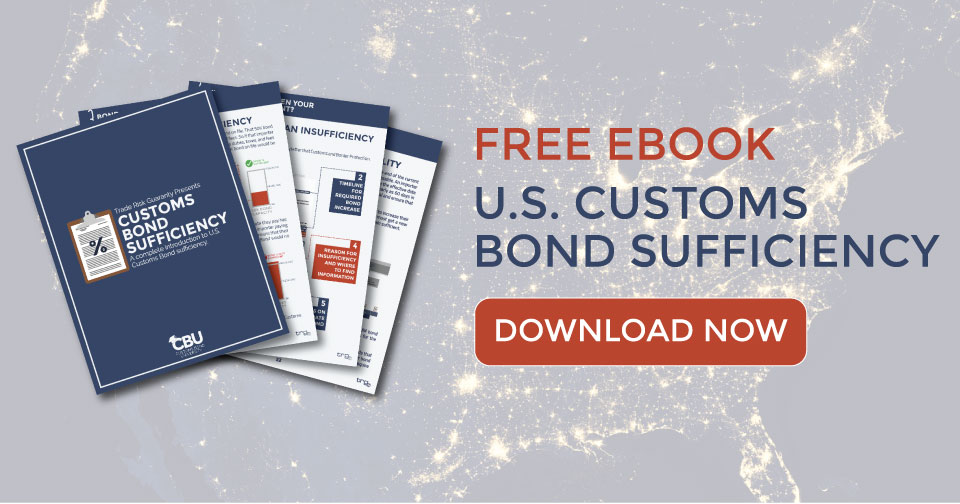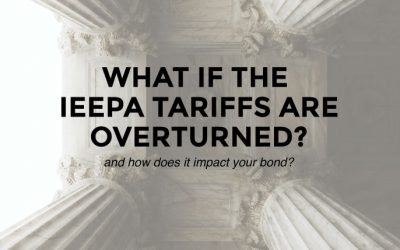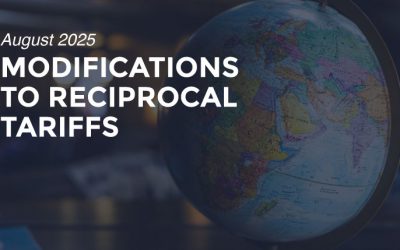As of June 2022, the Uyghur Forced Labor Prevention Act went into effect and importers have already begun to feel the effects.
On December 23, 2021, President Biden signed the Uyghur Forced Labor Prevention Act into law. This act went into effect on June 21, 2022 with CBP moving forward with full enforcement. This legislation will impact many importers including some that do not realize that they are subject. The first step to ensuring that your goods are not barred from entering the United States is understanding the UFLPA and getting a complete understanding of the lifecycle of your commodity from raw material to the final consumer.
What is the Uyghur Forced Labor Prevention Act?
The Uyghur Forced Labor Prevention Act (UFLPA) reinforces the United States’ policy that prohibits the importation of goods made with forced labor. Section 307 of the Tariff Act of 1930 prohibits the importation of “goods, wares, articles, and merchandise mined, produced, or manufactured wholly or in part in any foreign country by convict labor or/and forced labor or/and indentured labor under penal sanctions.”
As a result of the widely documented use of forced labor in the region, the UFLPA requires that U.S. Customs and Border Protection (CBP) apply a presumption that imports of all goods manufactured or mined (wholly or in part) in the Xinjiang Uyghur Autonomous Region (Xinjiang) of the People’s Republic of China, were made with forced labor and are therefore prohibited from entry into the United States. This act also applies to some specific entities that the U.S. government has identified and listed on the UFLPA Entity List.
How Will The Uyghur Forced Labor Prevention Act Impact Importers?
The UFLPA has gone into effect as of June 21, 2022. Therefore, as of that date, CBP has begun applying the presumption that goods imported into the United States that were produced wholly or in part in the Xinjiang Uyghur Autonomous Region were produced using forced labor and are therefore not allowed to enter the United States.
An importer may request an exception to the presumption from CBP, but this process will require providing clear and convincing evidence that the imported merchandise was not mined, produced, or manufactured wholly or in part by forced labor.
What Can Importers Do?
As of now, if you are an importer that is bringing in goods determined to be either partly or wholly made in this region of China, your shipment will not be allowed to enter the U.S. and will be stopped at the port. But the following are a few things you can do to help prove your shipment should be allowed to enter the U.S.
- Establish/maintain a due diligence program
- Carefully assess Xinjiang Uyghur Autonomous Region and related supply chain risks
- Mitigate exposure to forced labor risks Apparel/Textiles
- Be prepared to demonstrate compliance with the enforcement strategy’s due diligence, supply chain tracing, and supply chain management measures Agricultural goods
- Be prepared to respond to CBP inquiries and to demonstrate that goods are not mined, produced, or manufactured wholly or in part with forced labor







![[Webinar] How Could Changes to De Minimis Impact Your Company?](https://traderiskguaranty.com/trgpeak/wp-content/uploads/2025/05/trg-how-de-minimis-impacts-customs-bond-webinar-400x250.png)